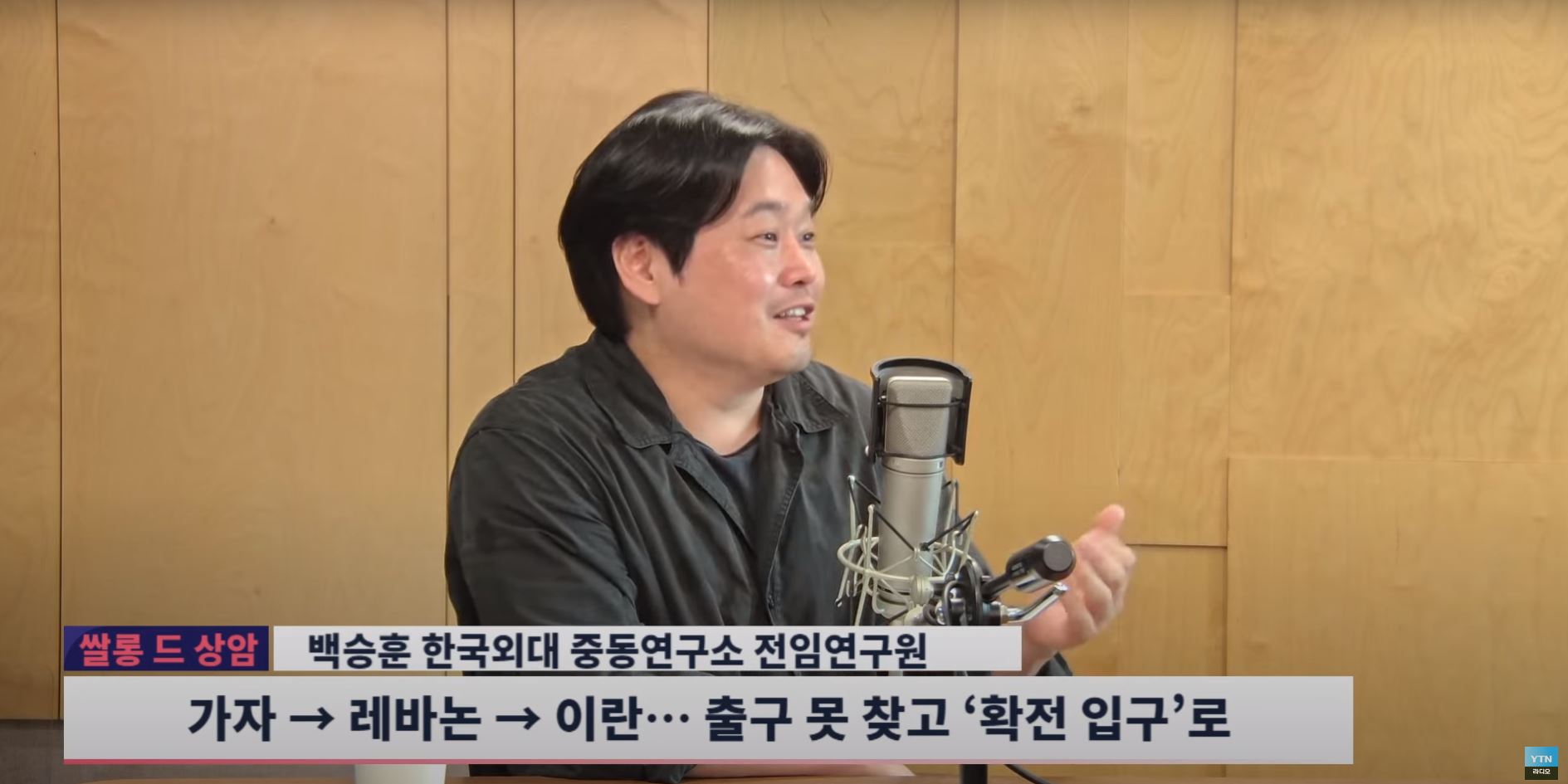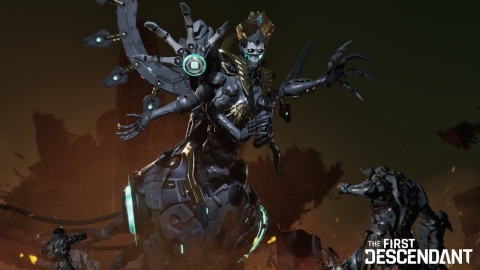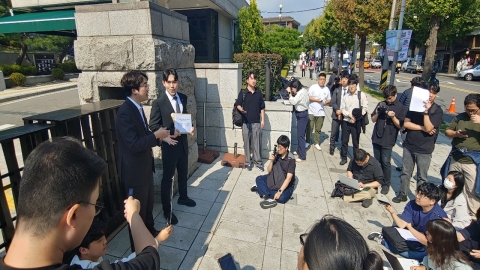□ Broadcast Date: October 8, 2024 (Tue)
□ Host: Lee Ik-seon, Choi Soo-young
□ Cast: Baek Seung-hoon, former researcher at the Middle East Research Institute of Hankuk University of Foreign Studies
* The text below may differ from the actual broadcast content, so please check the broadcast for more accurate information.
◇ Lee Ik-sun: Let's have a cup of tea after lunch and join us. Issue & People's Small Drawing Room Salon de Sangam It's only been a year since yesterday's war in Gaza, which began when Hamas, a Palestinian militant group, launched a surprise attack on a music festival in Israel. There are still gunfire all over the Middle East. The twisted situation in the Middle East... let's find out why? Let's point out with Baek Seung-hoon, a full-time researcher at the Middle East Research Institute at Hankuk University of Foreign Studies. Welcome.
★ Baek Seung-hoon: Hello.
◇ The war in Gaza was just one year yesterday, but it's a front line, it looks like it's magnified. First of all, we are in contact with a myriad of foreign media, but I often think, "No, what's wrong?" Please give me an overview.
★ Baek Seung-hoon: But if we say that the Israeli-Palestinian conflict is outlined, it will probably take two hours and three hours to catch it. It's too long, but I think I'll tell you this when I hear it. So in World War I, when Britain is a little bit behind in fighting what we call Germany and the Axis, the world actors are not countries to the world. I made a triple contract with a little bit of land for such a group. So, the Belfour Declaration that we know very well, in 1917, Foreign Minister Belfour said, "You're not Israel, you're me, you're not Israel, you're not Israel at that time. So I told the Zionist group, "If you help us, we'll make you an Israeli state after the war." And then the king of Jordan, Hussein, is a tribe in Medina, Mecca, where you stand with us, and you go up to Damascus and fight the Ottoman Empire, and we'll give you that land. I know that's what all of our older people know, but it's set in Lawrence of Arabia's movie starring Peter Hotoul. So, I made the proposal there and then called Sykes-Pico consultation, which is their ally to France. If we fight well, we'll give Syria and the northern part of the Middle East, so I'll give you the northern part of Syria and Iraq. And in a way, we'll give you three-fold contracts on the same land.
◇ Lee Ik-seon: The UK is very wrong.
★ Baek Seung-hoon: But when you talk about this, everyone speaks English, and so the UK does a lot of stopping work to solve it after the incident. So Hussein, for example, gave Israel what it is now, gave the land of Israel to Israel, and then gave his brother what we now know as Trans Jordan, and then his brother Faisal made the kingdom of Syria at first.France was angry and said, "Isn't this our land?" So we moved to Iraq and made a kingdom in Iraq, so Britain made a lot of effort. So research is bad. It's hard to simplify it. But as you said, the seeds were planted by the UK, right? It's a triple contract, so that's what we can't afford anymore in '48. When we leave the Middle East, as soon as we leave, Israel declares independence and says, "This is a country," and the first Middle East war that we know well breaks out. So from the first to the fourth Middle East, the conflict has been going on like this since 74 years ago, and after the Cold War ended, the Clinton administration strongly negotiated peacefully with you, which is what we know as the Oslo Accords of '93 and Oslo of '1995 and we have a peace agreement. So in the end, it's two national theories. So what we've heard is, let's make a state, let's make a state, let's make a state, let's make a permanent peace in it, and we came here like this, but Israel hasn't been listening since 2005. So, it was in 2005 and 2006 that the problem now became the biggest after continuing to lead in this way. I'm sorry. We have elections in 2006. The Palestinian region also holds elections, and now Hamas appears as the first party. So out of 1,324 seats, 74 out of 132, Israel won the ruling party. Since then, Israel has said, "I'm a terrorist, so I won't recognize them as interlocutors," and since then, we have built that high wall in Gaza, which we are good at. We stopped it. But in the M.N.T. and the U.N., it's violent. We cursed a lot because it was the same thing as the apartheid government in South Africa, but it kept going, and then there was one war in 2012 and then in 2017, and now in October 2023, Hamas started an operation called "The Flood of Evil." And that's what we see now.
◆ Choi Soo-young: So as you said, I understand everything well. But then you just have to hit Hamas. You've invaded us at the expense of 1200 of us, so why did you extend it to Iran and Revaron?
★ Baek Seung-hoon: There's another historical thing, and there's this. To put it simply, it goes up to 1969. At that time, the Egyptian president, Nasser of Egypt, started the third Middle East war wrong and the Palestinians fell into the state they are now. They take away the land, so how they signed the agreement is putting pressure on Lebanon. So with the PL, the apartment at the time, the FELLO, let them operate in Lebanon, the Palestinian National Liberation Organization, so they signed the Cairo Agreement in 1969. That's how the Palestinian Liberation Organization of Lebanon, Egypt, did this, and from then on, southern Lebanon, the so-called Israeli anti-state organizations, became enemy areas. It became that situation. So why are you expanding to Lebanon and Iran this time? I'm talking about it like this, but here it is. Because from Israel's point of view, the whole point of this war is that they can no longer stand this kind of anti-state group terrorizing. So what happened was that after we started the war after October 7th, we kept saying that the destruction of Hamas and the rescue of hostages was the first operation of our military operation. But to destroy Hamas, it's southern Lebanon. That's why you said you'd pick us if you couldn't break the relationship that you've been helping each other with roots since the 69-year-old negotiations, and you won't know that Hamas will be destroyed. That's what the Israeli military operation in Lebanon is doing. We are operating a buffer zone, so-called buffer zone in southern Lebanon. We do not intend to go to war with Lebanon. So Israel attacks Lebanon in 1985. So they're stationed for 15 years. So even then, the Israeli army was in control of the southern part of the country. Why do you want to cut off the influence of Hamas and the anti-Israeli forces in Israel and kind of Hezbollah and those groups that you just mentioned, and the war is going on exactly the same way. So what's wrong with Iran? Hezbollah is working as a Shiite militia. So Hezbollah and Iran have had a stronger family relationship since a long time ago. In '82 and '85, how the Hezbollah force came to be established was that Israel ruled for 2,000 years from '85. Hezbollah was founded in 1985. So it was created to counter the Israeli conquest, and since then Iran has helped, because it's a Hezbollah Shiite, and it's the same sect that's connected to it, and that's why Israel now has to engage in military operations to destroy Hamas, and to do that, it has to expand.
◇ Lee Ik-seon: So who is working with more justification right now?
★ Where are you going?
◇ Interest line: Israel's actions and anti-Israel forces. Which one is more justifiable?
★ Baek Seung-hoon: I honestly don't think there's either justification right now. Because when you were attacked on October 7th last year, Israel was right to claim. This is a just war. I told you we were attacked. But in the end, it's been more than a year, and I just checked Gaza this morning, and 41,800 people died. There are 16,000 children, 6,000 women, and more civilian victims. Then, when this happens, of course, Israel claims that Hamas is using human shields like this to use them as shields against civilians, but that's not the case. Gaza is a city the size of Sejong City in Korea. But 2.3 million live. So, it's as big as Sejong City, and it's as big as Busan people living in Busan. Then, of course, military operations there will inevitably cause collateral damage to cholesterol damage, and the use of cluster bombs and white phosphorus bombs they use will injure the civilian population, so as you said, there is no justification for both. And there's no more in a situation where there's an escalation. And didn't you do that radio terror attack with Pippi? After that, I think it's more objectified to see that there is no justification.
◇ Lee Ik-seon: Today, I'm talking with Baek Seung-hoon, a full-time researcher at the Middle East Research Institute of Korea University of Foreign Studies. We invited you to look at the complex inside of the Middle East a little easier. First of all, looking at the reaction of the international community, it seems that there is a lot of criticism against Israel.
★ Baek Seung-hoon: It's incredibly high. Because you know the Pippi incident that happened on September 18th. And then you'll know about the walkie-talkie incident. So, what surprised us was that Israel's intelligence department is Mossad, and isn't it known to be very efficient and capable?
◆ Choi Soo-young: It's called intelligence.
★ Baek Seung-hoon: But Mossad always worked in a gray area in a way. So what it means is, is this illegal or not? It may not be illegal, so the international community should always ride the line very skillfully at the boundary and scold it. I think there should be something to be done about it, but is this a bit of internal interference? I crossed the line this time because it was a bit too much. Because the so-called ghost company was set up in Hungary, so you worked on it for about 15 years? So, I got an OEM for the gold phaser beepee in Taiwan, made it in Hungary, and handed it over to Hezbollah, and I prepared it carefully. So, it's not just Hezbollah that they supply like this, but Hezbollah is bound to be deceived because it's been working for 15 years and selling it to other civilians and private companies. I planted it like this. Then, of course, the ruling opposition party in Hungary is now angry. Because if you use our country to create a Hungarian company, a BAC consulting company, it would be quite bubbling in a way. So it would probably be a violation of international law. Because this is what terrorist groups do, not normal countries. So Israel did what we think North Korea or Iran would do, so some experts say Israel is amazing. There are often people who say that the Ministry of Information should do that, but I see it the other way around. Because if you go over the law too far, the international community can't talk this hard because it's a war situation, but maybe after the war ends this time, the settlement will go in. So, as you asked Israel, why the international community is growing against Israel a little bit, and as I said earlier, the number of civilian victims is increasing too much. In the current year, 41,800 people have died in Gaza, 16,000 children have died there, and 4,000 are now civilian victims in Lebanon, and then they burst the beep through the terrorist attack, but the person who has the beep is a terrorist and a person who attacks us. However, the international community's public opinion is very bad because the place exploded in a public place and his young son died. It's not good right now.
◆ Choi Soo-young: Why is Netanyahu so obsessed with war that he is so sure? There are so many criticisms at home and abroad.
◇ Lee Ik-seon: I heard that the approval rating has gone up in the country.
★ Baek Seung-hoon: But you'll have to look at this, too. Maybe now we have military operations and conservatives, especially the hard right, are united. This is the opportunity. At this time, we supported the need to wipe out some of the forces that threaten our security, but what happened around September 7th was that Israel killed all six people who were held hostage during a military operation in Gaza. That day, 700,000 demonstrations in Israel...
◇ Lee Ik-seon: Wait a minute. Who's taking the hostage?
★ Baek Seung-hoon: Oh, we are sorry to the Arab world. After the Al-Aqsa flood, about 260 people were kidnapped by Hamas. I was kidnapped. So, when Israel was conducting military operations, they said that Hamas' destruction and rescue of hostages were what they wanted, but about 90 hostages are still being reported and are now being held, but 30 are dead. So you have 60 people alive, and you have six people killed while you're doing military operations in Gaza. So why do the Israeli people keep trying to fight Lebanon and Iran in the war when they are useless and unable to rescue hostages? That day, 700,000 people demonstrated like this and later protested tremendously. So I also felt Netanyahu. I was so surprised that I made an official apology the next day. This is my mistake. So, it means that the approval rating fluctuated to the extent that we failed to protect the security of the Israeli people. Going back, now we are conducting military operations like this with little damage to Israel, but if the number of victims in Israel increases further and this happens, it will probably be different again. It's just that the war has begun and the convention effect can cause the approval rating to rebound significantly now, but if this is sustainable, it's not like that as a professional until now. It could be a bit off, so I think that's something we have to watch.
◆ Choi Soo-young: There's another question here, we talked about Lebanon. But in Lebanon, you said earlier that Israel would only hit a certain part of it, but Lebanon is a normal country, regular army, and sovereign country, so why don't you defend it now?
★ Baek Seung-hoon: So this is something that people who know the national system, that is, normal countries like Korea, don't understand, but Iran and Lebanon have a two-part military structure. So, like Korea, there is an Army, Navy, and Air Force, and Iran also has IRGC, and Iran's Revolutionary Guard Corps is on top of it. But Iran's Revolutionary Guard also has the Army, Air Force, and Navy. So it's kind of unique in a way. But there are about 80,000 Lebanese soldiers in Lebanon. The army, the navy, and the air force combined. But Hezbollah is over 100,000. So Hezbollah is stronger. And the reason is that this is such a long history that I can't explain it here now, but to put it simply, there are so many sects called Lebanon that were originally ruled by France and then became independent. So there are so many maronites, druzpahs, and Sunnysian and Greek Orthodox churches, so if you leave this for independence, there will be a war. I think there's going to be a sectarian civil war. So what I did was make up the population, and Maronite, which had the most population at the time, always had the president, then Suni had the prime minister, and then Shiites had the chairman of the National Assembly. I drew the coalition and did it with the proportion of the population. So now Lebanon doesn't have a population consensus. Because if you do that, shouldn't it be changed by the constitution? Sunni and I have a lot of vision right now.
◆ Choi Soo-young: That's an uncomfortable truth.
★ Baek Seung-hoon: So this is a sectarian conflict and because of this, the military is bound to be affected by that sect. So it's bound to be weak. The army itself was at that time, but in 1980, when the civil war broke out, Israel intervened and the Lebanese army was weak and could not do anything to fight the Israelis, so then a force called Hezbollah was formed and fought. During those 15 years, he became such a big armed faction. So there's a Lebanese army right now, but it's not easy. And the problem is that the Lebanese army is weak, so someone said this at our time. Isn't this an opportunity? Shouldn't Lebanon attack this by helping Israel when they hit Hezbollah? If I do this, another civil war will break out, so I can't do it. As you said, Israel is attacking and Lebanese citizens are dying. In some battlefields, the Lebanese army is cooperating with Hezbollah in some areas. So much so that people are talking about it. Because Lebanon is also dead. Israel. So today, if you talk about why the military is like that and why it's a two-part structure in a short time, it's hard to make a series, but if you talk about that, you'll probably understand that there's a complicated problem.
◇ Lee Ik-seon: But attention is focused on when and how Israel will go into retaliation again. It now touches Iran's largest oil facility. We touch the nuclear facilities. No, no. Did they say no to nuclear facilities in the United States?
★ Baek Seung-hoon: I said I was just thinking about the refinery, but I didn't say that to hit the refinery. And right away, President Biden said, "No, I didn't allow you to attack the oil refinery," but he gave me a nuance of saying, "Even if we attack the refinery like this, we might allow it." I gave it to them, so that's a bit of a problem.
◇ Lee Ik-seon: Once this happens, it's going to be our problem of not being able to see the other side of the river. That's why I'm worried.
★ Baek Seung-hoon: I want to tell you this. In the media, I'm doing World War III, World War Five, Middle East, and the reason why I'm on this program as an expert is that we need to avoid that in the media. Because let me tell you. Now let's talk about when you hit an oil facility. Iran now produces 3.4 million barrels of oil. So 3.4 million barrels per day, so 340 years a day, do you know how much oil is produced in the world per day? It's over 100 million barrels. It's not that long. So it's 3% and 3.4%. And don't do another thing. Do you know who's buying oil? I can't buy other countries because of the economic sanctions. Who lives in China? China, Russia, and this is unlikely to affect the international market. Of course, oil prices have risen 9% compared to last week, but that's because of anxiety, but it can go up in the short term, but the probability of going up in the mid to long term is not that high. So to give you an example, it's this. In 2022, Saudi Arabia, Russia, and the United States have been a little close. So Saudi Arabia will cut our oil production. I said I would raise oil prices by cutting production because oil prices were so cheap, but President Biden couldn't do it then. We've released money now because of the economic crisis, so if you raise the price of oil, it won't work, so I said that, but I'm not going to live. So, MBS, now the crown prince of Saudi Arabia, is not with Putin. No, we're going to cut production, and we're going to cut production, and we're going to cut production, and we're going to cut production, and we're going to cut production, and we're going to cut production by 2 million barrels a day. But what happened? At that time, Biden will take the path and reconsider Saudi Arabia's relationship. It was a situation where we were talking about this, but the U.S. increased production to see what measures were taken next. There's shale oil, so it's filled in the amount that's missing from the increase in production. So what happens is that Saudi Arabia raised its hands like this because it wanted to lower oil prices, but it only lowered its share in the international market because it was looking for U.S. oil. So, thinking that this will be a problem in the future, we raised our hands and said we would increase production. So the reason I'm telling you this is that the oil market is no longer a supplier-controlled market. Of course, we have to think about and worry about the oil refinery attack on Iran, but if it goes to such an enormous energy crisis, an expert should come out and say it with a little bit of restraint, but there was a bit of a pity that we couldn't do that.
◆ Choi Soo-young: Because of that anxiety because we had an oil shock, but actually hearing what you're saying now, there's a high possibility that we don't have that in the data.
★ Baek Seung-hoon: No big problems. As the anchor said now, it was until Iran really went to the end game to become a big threat to our country as the host said. So since I was attacked, I will attack Saudi Arabia, UAE, Kuwait refinery. And I'm going to block the Strait of Hormuz. When that happens, it can go up to $200 a barrel, as Bloomberg says now. It's like this, but that's just saying the worst-case scenario, so we need to avoid it a little bit. But of course, you have to think about it and prepare for such policies, but you don't have to suffer from such fear too much.
◇ Profit line: Okay. It's such a waste of time. I thought I should invite him again. Today, I decorated Salon de Sangam with Baek Seung-hoon, a full-time researcher at the Middle East Research Institute of Hankuk University of Foreign Studies. Thank you for coming forward.
◆ Choi Soo-young: Thank you very much.
★ Baek Seung-hoon: Thank you for the invitation.
[Copyright holder (c) YTN Unauthorized reproduction, redistribution and use of AI data prohibited]
International
View the full list of articles- The number of Japanese companies going bankrupt in April-September exceeded 5,000 in 10 years.
- Two scientists who contributed to the creation of artificial intelligence received the Nobel Prize in Physics."Building the foundation for machine learning"
- Hezbollah's second-in-command, "Israel's ground forces can't advance"
- 'World's Longest Prisoner': Japanese Death Penalty Confirmed After 58 Years


![[On site Y] "Audrey" Kim Jung-nan, "Park Ji-hoon, I'm serious about acting..."You'll do better in the future".](https://image.ytn.co.kr/general/jpg/2024/1008/202410081930377617_h.jpg)
![[Site Y] "Full of warmth"...Kim Jung-nan X Park Ji-hoon's "Audrey" will raise the temperature of mind (Roundup)](https://image.ytn.co.kr/general/jpg/2024/1008/202410081914286680_h.jpg)


